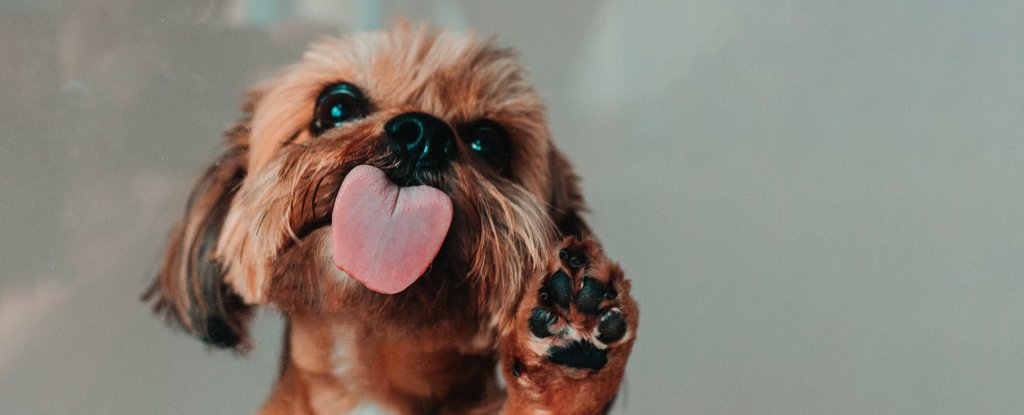Products You May Like
Dogs often seem uncannily shrewd about what we’re trying to tell them.
A handful of recent studies offer surprising insights into the ways our canine companions are hard-wired to communicate with people.
The most recent of those studies, published last week in the journal Scientific Reports, found that dogs can understand the difference between their owners’ accidental and deliberate actions.
Earlier this summer, another showed that even when puppies primarily grow up around other dogs – not humans – they are still are better at understanding our gestures than wolf pups raised by people.
Still other research describes how puppies are born ready to interact with humans, no training required.
“Dogs’ communicative skills uniquely position them to fill the niche that they do alongside humans,” Emily Bray, a canine-cognition researcher at the University of Arizona, Tucson, told Insider in an email.
“Many of the tasks that they perform for us, now and in the past (i.e. herding, hunting, detecting, acting as service dogs), are facilitated by their ability to understand our cues.”
Dogs recognize their owners’ intentions
Sometimes, when giving a four-legged friend a treat, we drop it by accident. Other times, owners withhold treats to teach their dogs a lesson.
According to last week’s study, dogs can tell the difference between a clumsy human who intends to give them a treat and a person who is deliberately withholding that reward.
The researchers set up an experiment: A person and a dog were separated by a plastic barrier, with a small gap in the middle large enough for a hand to squeeze through. The barrier did not span the length of the room, however, so the dogs could go around it if they wanted. The human participants passed the dog a treat through the gap in three ways.
First, they offered the morsel but suddenly dropped it on their side of barrier and said, “Oops.” Next, they attempted to pass the treat over, but the gap was blocked. Lastly, they offered the treat but subsequently pulled back their arm and laughed.
The experimenters tried this set-up on 51 dogs and timed how long it took each to walk around the barrier and retrieve the treat. The results showed that the dogs waited much longer to retrieve the treat when the experimenter had purposefully withheld it than when the experimenter dropped it or couldn’t get it through the barrier.
This suggests dogs can distinguish humans’ intentional actions from their unintentional behavior and respond accordingly.
Even puppies raised with limited human contact know how to read us
Earlier this summer, Bray published a study analyzing the behavior of eight-week-old puppies – 375 of them, to be precise. The pups were being trained at Canine Companions, a service-dog organization in California. And they had grown up mostly with their litter mates, so had little one-on-one exposure to people.
Bray’s team put the puppies through a series of tasks that measured the animals’ ability to interact with humans. They measured how long it took the puppies to follow an experimenter’s finger to find a hidden treat and how long they held eye contact.
The team found that once an experimenter spoke to the dogs, saying, “Puppy, look!” and made eye contact, the puppies successfully reciprocated that eye contact and could follow the gesture to locate the treats.
“If you take away the preceding eye contact and vocal cue and give a signal that looks the same, dogs are not as likely to follow it,” Bray said.
The researchers found that the puppies’ performance on the tasks did not improve over the course of the experiment, suggesting this wasn’t part of a learning process. Instead, they think, dogs are born with the social skills they need to read people and understand our intentions.
“We can assume that puppies started the task with the communicative ability necessary to be successful,” Bray said. She added, though, that dogs’ abilities overall can improve these as they age, just as humans’ do.
Her team had access to each puppy’s pedigree, so could assess how related the 375 dogs were to one another. According to Bray, 40 percent of the variation in the puppies’ performance could likely be explained by their genes, suggesting “genetics plays a large role in shaping an individual dog’s cognition.”
Dogs are more likely to ask humans for help than wolves raised by people
Research published in July further underscored the idea that dogs are hard-wired to be “man’s best friend.”
The study compared 44 puppies raised with their litter mates at Canine Companions to 37 wolf puppies that received almost constant human care at a wildlife center in Minnesota. The researchers tested how well the dogs and wolves could find a treat hidden in one of two covered bowls by following a person’s gaze and pointed finger.
The dog pups were twice as likely as their wolf counterparts to pick the right bowl, even though they’d spent far less time around people. Many of the puppies got it right on the first try, suggesting they didn’t need training to follow those human gestures.
“Dogs have naturally better skills at understanding humans’ cooperative communication than wolves do, even from puppyhood,” Hannah Salomons, an animal cognition researcher at Duke University who co-authored the study, told Insider. “I would say, based on our results, that nature is definitely playing a greater role than nurture in this regard.”
The dogs were also 30 times more likely to approach a stranger than the wolves, Salomons’ group found. And in another task, in which the animals were trying to get a treat stuck inside a closed container, the dogs also spent more time looking to humans for help.
The wolves, by contrast, were more likely to try to tackle the problem on their own.
This article was originally published by Business Insider.
More from Business Insider:
